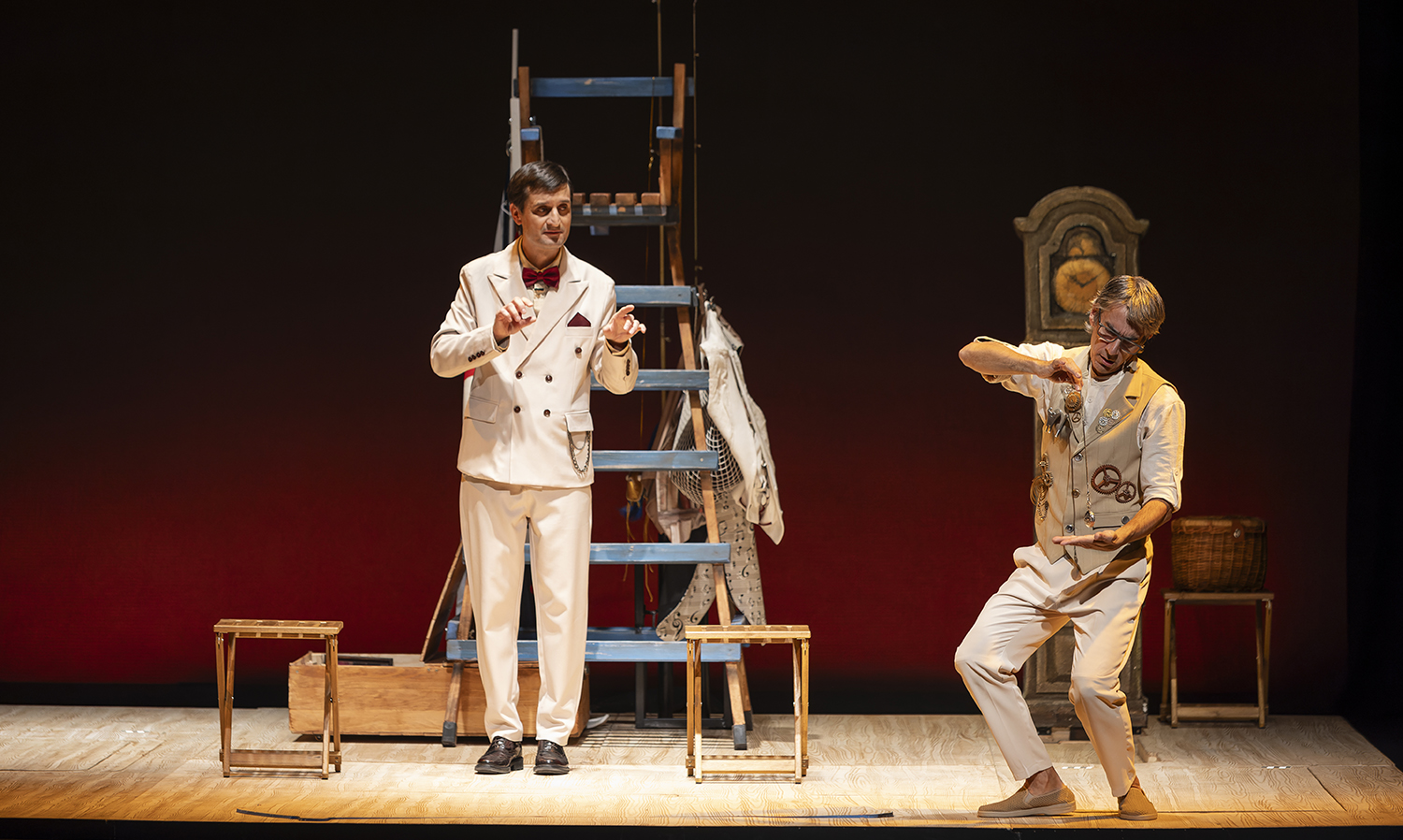
- The play ‘As a Fish’ aims to speak naturally with children about Alzheimer’s. “The sooner we work, the less stigmatized,” said Director Ana Maestrojuán.

It has the past more present than the present, it forgets things, it gets confused and interprets time differently. These are some of the features of Marcial, protagonist of the play Arrain bat bezala. Teachers is a theater play created by the company, whose goal is to work Alzheimer's with children through art. “It was clear that we have to work with the children. The sooner we work, the less stigmatizing. In fact, this disease is very stigmatized,” said director Ana Maestrojuán. These are issues that affect him, and because a close person was diagnosed with Alzheimer's, he decided to address the issue naturally. The latest shows will take place on 5 October in Azkoin and 6 in Estella. The latest performances are in Spanish, but the intention is that more representations can be made in Basque.
According to the director, “theater is a reflection of society.” For this reason, he wanted to reflect a normality that lives closely: “Children live surrounded by people with this kind of disease. I think you can work from love, from rigor and from theater.” The play does not explicitly say that the protagonist has Alzheimer’s, as the goal is for children to ask what happens to Marcial: “Children have a look that we have lost. In addition, they are more generous and not so polluted.”
At the end of the play, many children ask what the protagonist has, why they forget things and many other things. So before the shows, talks are held to give adults the keys to talking about Alzheimer's with children. The colloquia are run by professionals of the Association of Relatives of Alzheimer's Patients and Other Dementias of Navarra (Afan). They have also advised in the creation process.
"It's convenient to give the answers honestly and lovingly"
Simple, clear and easy to understand
Zuriñe Muzquiz, psychologist of the Eslava Afan association, has explained some of the tools he has to do so. First, he stressed the need to use “simple”, “clear” and “understandable” language, and to be a message adapted to age: “We can use simple comparisons or everyday situations to explain complex ideas. For example, Alzheimer's is a mental illness. This disease weakens memory and the ability to think. That's why you'll sometimes forget things: Names, objects…”. In addition, he says that drawings, stories or plays can help.
He has also said that it is important that the questions asked by children take place and not be avoided: “It is imperative that children feel that we listen to them and give them the opportunity to express everything they feel or think. It’s also convenient to give answers honestly and lovingly.” But what's the best time? According to Muzquiz, it is usually when the child starts to notice the changes: “It is important to choose calmly the time to give explanations when the child feels comfortable and safe.”
In addition, exercises can be done to work the relationship between the child and the person with Alzheimer's; for example, to perform activities on the history of life through a collection of photographs, to perform simple puzzles, to draw and to listen to music.